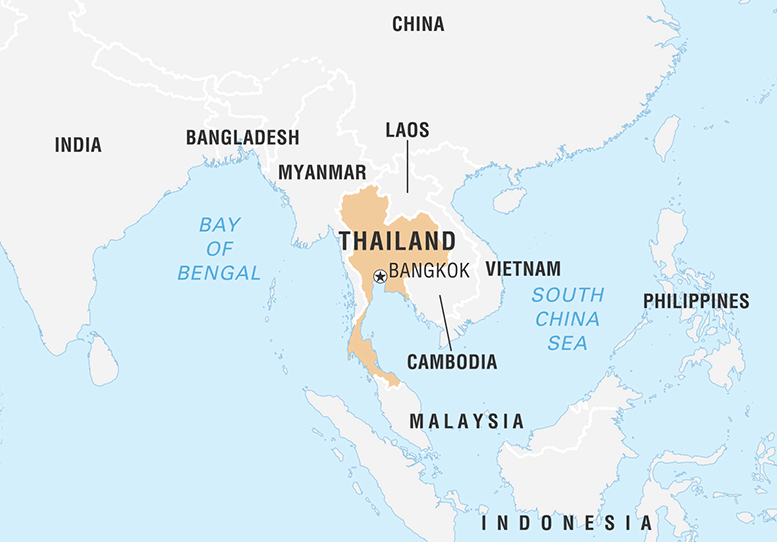Several companies have announced plans to develop CBD business in Thailand following the removal of hemp and marijuana from the country’s list of dangerous drugs last week.
The changes cleared the way for the processing of cannabis flowers after the government in late 2020 started allowing manufacturers to produce hemp seed oil- and extract-based cosmetics, and products from plant stalks, and last year approved hempseed oil derivatives for use in food and drinks.
Thailand’s general cannabis law as it affects investment, sales and imports is highly restrictive. Cannabis permits are granted only to government entities and their partners, and hemp products cannot be imported until 2024, under rules announced at the end of 2020.
Big state players
With hemp flowers now also legal, several domestic companies have announced plans to enter the CBD sector:
- Sri Trang Agro Industry, Thailand’s biggest rubber grower and exporter, said it has invested 26 billion baht (~$743 million) in marijuana and hemp for production of CBD for medical products and functional foods, the Nikkei news service reported. The company said it is growing hemp in Thoen District of Lampang Province to turn out grain, flowers and roots for customers already contracted. Sri Trang said it employs a digital traceability system that tracks its output from the seed origin and allows real-time viewing of hemp plots. With large swaths of land in its portfolio, the company said it is ready to expand hemp fields depending on demand.
- Charoen Pokphand Foods (CP), the food and beverage unit of CP Group, Thailand’s biggest conglomerate, said it entered a joint venture with Gunkul Engineering, a renewable energy company, that will produce CBD-infused food and beverages. The companies said the joint venture will invest in hemp cultivation and sell the products through CPF’s retail network. Charoen Pokphand Foods announced a partnership last year with Maejo University through which it is developing a hemp-based ready-made food line. The parent company, CP Group, operates across a wide range of industrial and service sectors in eight business lines, and has investments in 21 countries.
- Renewable power developer Eternal Energy said it has invested 680 million baht (~$19.5 million) in hemp growing operations for CBD, which will be sold to clients that were contracted in advance.
- Hemp and Medical Cannabis operator 88Cannatek said it has invested 177 million baht (~$5.0 million) in hemp farming operations where it grows CBD hemp for additives to functional foods and cosmetics. The company said it has partnered with contracted farms in central Thailand and has a plantation in the northern city of Chiangrai. 88Cannatek already produces around 250-400 kg of CBD annually for export and aims to increase that to 3,000 kg over the next few years.
Moving on hemp
Other Thai interests are also moving on hemp:
- Tobacco Authority of Thailand (TOAT) said last year it has a plan to transition 13,500 tobacco farmers to industrial hemp and marijuana, suggesting growers could nearly triple income by cultivating cannabis. At the time, the Authority announced plans to plant up to 1,000 rai (~400 acres/160 hectares) of hemp and marijuana. TOAT said it has ongoing discussions with domestic and international parties regarding the development of cannabis supply chains, including financial institutions to support farmers.
- DOD Biotech announced last year that it planned to make supplements and skincare products with hemp, partnering with leading retailers including Rojukiss Internation, Beauty Community, and 555 Shopping Company.
1.0% THC ‘on the field’
Thailand took its first step toward decriminalizing cannabis in 2019, when the government allowed marijuana to be grown and used for medical purposes. Under the changes to the hemp sector that became effective in 2020 and 2021, producers can make and sell cosmetics and food with hemp seed oil or hemp seed extract if the products do not contain more than 0.2% THC by weight.
Thailand is the first country in Southeast Asia to decriminalize all forms of cannabis, and one of only a handful of nations that have set the THC level for hemp growing at a full 1.0% by dry weight. Most countries observe 0.3% THC as the delineation between high-THC marijuana plants and industrial hemp.

